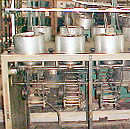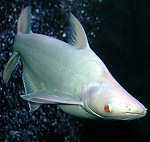 Yesterday a new indictment for conspiracy to export controlled technical data was issued against a family that had been previously indicted for failing to register as agents of the Chinese government. At the center of the case is naturalized U.S. citizen Chi Mak who worked for a defense contractor in California. Mak allegedly took files from his employer about, among other things, naval ship design. He then encrypted them, hid them as music files on a CD, and passed the CD to his brother Tai for delivery to the Chinese government. The CD never made it to China, but was found in Tai’s luggage at LAX as he prepared to depart for China.
Yesterday a new indictment for conspiracy to export controlled technical data was issued against a family that had been previously indicted for failing to register as agents of the Chinese government. At the center of the case is naturalized U.S. citizen Chi Mak who worked for a defense contractor in California. Mak allegedly took files from his employer about, among other things, naval ship design. He then encrypted them, hid them as music files on a CD, and passed the CD to his brother Tai for delivery to the Chinese government. The CD never made it to China, but was found in Tai’s luggage at LAX as he prepared to depart for China.
Mak’s problem, however, is not only the indictment. He has also hired a lawyer who doesn’t appear to have a clue about export law, at least judging from this statement:
[The] attorney for Chi Mak . . . said he hadn’t seen the indictment. He said his client worked with sensitive information as part of his job, but never misused it or stole intelligence.
“My client is involved in an area of technology that is not classified — is not even prohibited from distribution,” [Mak’s attorney] said. “It’s a strong sign that they are desperately trying to find whatever counts can stick. They’ve overcharged this case consistently.”
As any export lawyer or export compliance officer knows, technical data on USML items need not relate to classified or restricted technology in order to require a license for export. It only needs to be company-proprietary technical information about a USML-listed defense article.

 Posted by
Posted by  Category:
Category: 

 The U.S. Attorney’s Office for the District of Columbia
The U.S. Attorney’s Office for the District of Columbia  False labelling of exported goods can land exporters in a world of trouble and sometimes in places they don’t expect. We
False labelling of exported goods can land exporters in a world of trouble and sometimes in places they don’t expect. We  Today is Friday, and we have shrimp on the menu.
Today is Friday, and we have shrimp on the menu.

